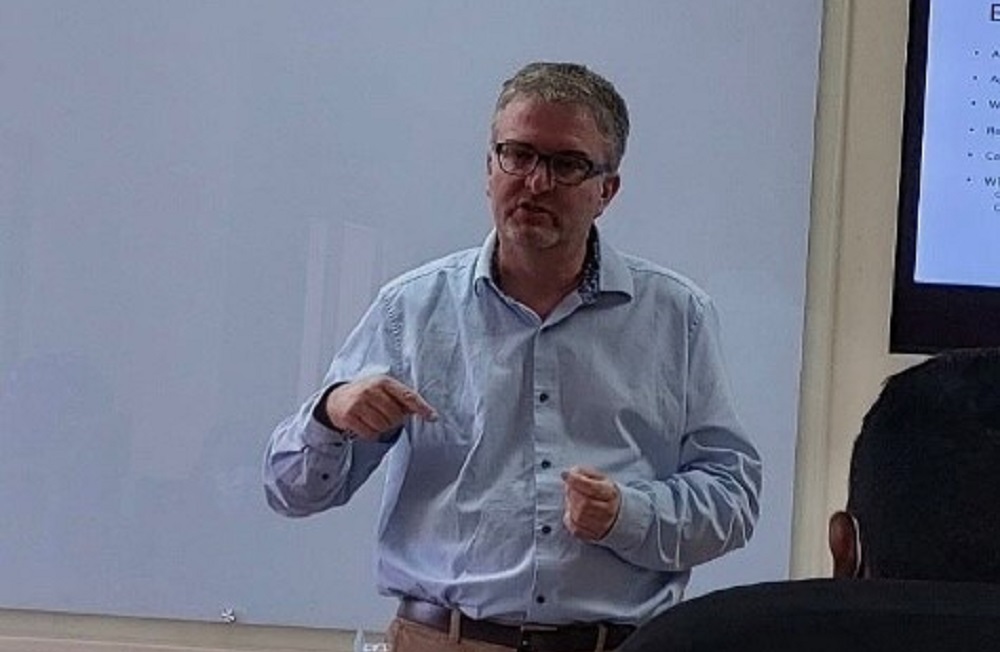
Sri Lanka an integral part of the Company’s manufacturing Strategy
Large fashion brands typically need several manufacturing bases, especially to reduce the business risk of disruptions stemming from production being concentrated in one location.
In selecting geographical locations for such bases, multiple criteria need to be considered. Shipping lead time is one such and countries along major shipping routes linked with key markets are often preferred.
The skill level of employees is another crucial factor. Transferring skills to employees to produce the likes of high-end lingerie can take years, if not more. Hence, countries with a high skill base which have been manufacturing in these genres for decades are highly preferred.
The presence of a robust supply chain, through which raw material can be sourced reliably at competitive prices is yet another consequence. Building and developing strong supply chains is a long-term process and having raw material close to “needlepoint”, is key for lead-times, cost and sustainability.
Wacoal, a leading designer and manufacturer of high-quality, plus size lingerie and bra-sized swimwear for the European market, one location stands out in particular – Sri Lanka. The country is unique in that it scores high on all key criteria required of a manufacturing base for high-end lingerie in specific and high-end fashion in general.
The Company, a market leader in the plus-size lingerie categories, promotes inclusivity and body positivity via women’s intimate wear with its extensive brand portfolio for Wacoal Europe which includes Wacoal, Fantasie, Freya, Elomi and Goddess.
“We initially came to Sri Lanka in 2005 through a partnership with a leading Sri Lankan manufacturer,” recalls Supply Chain Director of Wacoal Europe Andrew Yeomans. “We have been continually upscaling our operations in Sri Lanka and now employ more than 1200 in our team.”
Despite the recent challenges faced by the island nation, production volumes of Wacoal Lanka – the Sri Lankan entity – have been maintained. Wacoal is eyeing further expansion of its manufacturing base in Sri Lanka, with two additional production lines being added in the coming months. In tandem, the company continues to invest in new technology.
“We saw far more of an impact from the pandemic, which caused challenges across all manufacturing bases, compared with the situation in Sri Lanka right now. We continue to have confidence in the country and believe strongly that we made the correct decision in continuing to invest in the country.
“Despite challenges, Sri Lankan authorities understand the importance of the apparel exports industry and have continued to support the sector. Our team on the ground, similar to the rest of the country, has been very resilient and continues to meet every new challenge placed in front of them.
“On our part, we have further stepped up efforts to look after our employees by providing concessionary meals, free transport and help with cost of living increases in general. We continue to do our utmost to provide a good working environment to all our workers”
Andrew notes that Sri Lanka’s strong competitive advantages as a manufacturing destination for high-end apparel items continue to apply, notwithstanding the current situation.
“In the 1990s and 2000s, lingerie manufacturers saw Sri Lanka as ‘the place to be’. Especially companies like Courtaulds and Coats Viyella made great efforts to transfer skills to Sri Lanka and as a result, there was a large manufacturing shift from the UK to Sri Lanka. Now, especially in lingerie, Sri Lanka has a very high skill base.
“Add to that, Sri Lankan apparel industry pioneers also invested heavily in building a robust raw material supply chain for the industry. Sri Lanka’s location along major shipping routes is also a plus. Before the pandemic, shipping lead time to the UK was only around four weeks.”
Andrew notes that such conventional competitive advantages have been strengthened by the ongoing efforts in the country, especially by initiatives aimed at strengthening supply chains and sustainability of operations.
“These two aspects are interlinked. Strengthening the supply chain, especially by increasing local production of raw material has a significant sustainability impact, as it reduces the need to transport material over long distances, among other factors.”
Sri Lanka recently initiated a dedicated fabric processing zone in its Eastern Province, which conforms to high standards of environmental protection and sustainability. Besides strengthening the supply chain and sustainability measures, this move will also enable the country’s apparel exporters to make greater utilization of preferential tariff schemes, by increasing local value addition.



